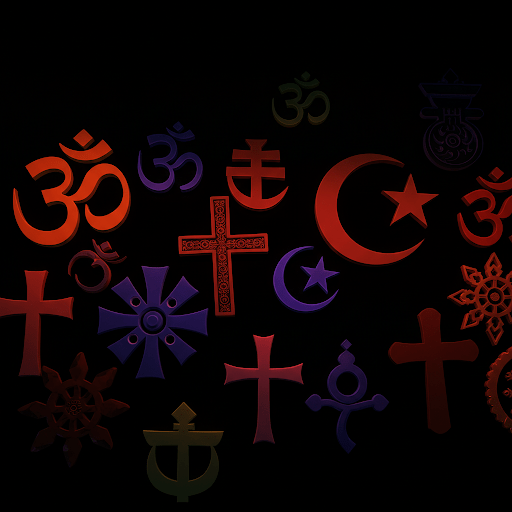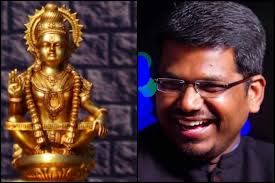Introduction
India is oftenly referred as vishwa Guru – But is India really a vishwa guru or a global power in this Article the author has discussed everything related to it in detail.
Definition of a Global Republic:
A Republican Global Power refers to a nation that embodies the principles of republicanism and wields significant influence on the global stage. Republicanism is a system of government where power is held by the people or their elected representatives, rather than a monarch or dictator.
It’s main features include Representative democracy, Separation of powers, Protection of individual rights and Accountability. A Global Power is a nation that exercises significant influence and leadership on the international stage which can be achieved through Economic strength, Military capability, Diplomatic influence, Cultural and technological advancements. A nation that combines these two concepts is a Republican Global Power.
India’s Journey towards becoming a strong republic:
Many assume that the global consolidation of republicanism set in immediately following World War I. In fact, the path to global republicanism was fraught and riddled with numerous obstacles along the way. Many of these challenges came not just from external non-republican forces, but from the actions, strategies, and prejudices of the republican powers themselves.
These stumbling blocks exist no more, and if the Indian republican state structures its actions in the context of the global environment, a major global power with republican institutions and a republican ideology could emerge.This is especially possible if India continues with its economic and social transformation and simultaneously achieves a position of leadership in Asia and the Indian Ocean region.
Importance of India in the Global Geopolitical Landscape:
Ever since India became a republic, many political theorists have reflected on India’s republican traditions. Drawing from existing political thought and blending it with ideas characteristic of India has allowed India, they believe, to fashion unique institutions and representative systems that stand out in stark contrast to the institutions practiced in other non-republican and industrialized countries.
India is the repository of a unique and sui generis praxis, and that has been a lighthouse to democratic thought and practice. Being the largest and oldest democracy in this motley grouping of states, the Indian Republic’s promise stands out, and the world takes note of India’s achievements in democratizing society and economy.
Economic Progress:
The Backbone of Global Influence, India’s GDP growth and economic resilience:
India’s economic growth is a testament to its potential as a global power, this can be seen through its financial stability, which involves managing stock flows,business cycles and economic models effectively. A country’s economic conditions depends largely on its Growth Rate in the Short run and long run.
Production Possibility Curve. Some of the essential Growth Indicators are National Income, Flow of Income Factors , Flow of Final Expenditure , GNP, NNP NNPfc, GDPmp, GDPfc, NDP, NNDY, Y and Z. This can be achieved through a diverse economy where several key sectors contribute significantly to its growth and development.
Key industries driving India’s economy
Some of the key economic sectors in India include Services Sector, Manufacturing Sector, Agriculture Sector, Energy Sector, Infrastructure Sector, Mining Sector, Tourism Sector, IT and ITES Sector, Pharmaceuticals Sector and the E-commerce Sector. These sectors are expected to continue driving India’s economic growth and development in the coming years, not only that Digital Economy and Artificial Intelligence driven growth is shaping India’s future
In conclusion, India’s path ahead as a strong republican global power is paved with opportunities and challenges. India’s GDP growth rate has been impressive, with an expected rate of around 8.5%.The country has made significant strides in infrastructure development, with investments in transportation, energy, and telecommunications India’s economy, the world’s fifth-largest by nominal GDP, has shown significant growth over the years.
The country’s economic liberalization in 1991 paved the way for its integration into the global economy, however, the country still faces significant environmental challenges, including air and water pollution, deforestation, and climate change along with Inflation, unemployment, poverty, and corruption persist.
Political Landscape
Role of democratic institutions in India’s rise
India’s political system is a federal parliamentary democratic republic, where the President is the head of State and the Prime Minister is the head of Government. It is a democratic institution. Democratic institutions are the backbone of a healthy political landscape, as they provide a framework for the exercise of power and the protection of Individual rights and liberty.
Federalism and governance efficiency:
The key characteristics of Democratic Institutions include Rule of Law, Free and Fair Elections, Separation of Powers, Independent Judiciary, Protection of Human Rights, Transparency and Accountability. Effective Governance plays a crucial role in enhancing Republican Global Power by Promoting Transparency and Accountability, Encouraging Citizen Participation, Fostering Economic Growth and Development and Strengthening International Cooperation, however Republican Governments are not free from criticism.
Electoral system and its impact on policy making
One of the primary criticisms of republican governments is their potential vulnerability to corruption and abuse of power, due to which electoral system plays a vital role in policy making. When institutions are weak, and accountability mechanisms are inadequate, those in power may exploit their positions for personal gain or to maintain their grip on power.
This can lead to a decline in trust in government due to lack of transparency and erosion of legitimacy. Furthermore, poor republican governance can lead to Inequality and Exclusion, Polarization Gridlock, External Pressures, Threats, Corruption and lack of transparency which was observed in the the case of Mishra A. (2019), however stricter imposition of RTI Act 2005 can lead to commendable changes
Social Development
Social Development is essential for any state to emerge as a Republican Global Power. Education and healthcare are vital pillars of republican governance. The Right to Education Act, 2009, and the National Health Policy, 2017, reflect these efforts (Government of India, 2009; 2017)[7][8]. Education empowers citizens with critical thinking, civil and political awareness which enables them to participate in the democratic process.
This fosters an informed and engaged electorate and who are essential for holding leaders accountable. It also enables the opposition party to act as watchdogs. India is actively working on its social development by investing more on Infrastructure.
Healthcare ensures a healthy and productive population, by reducing Infant Mortality Rate, Maternal Mortality Rate, Socioeconomic disparities and promoting social cohesion. By investing in education and healthcare, republican governments can build a more informed, engaged, and resilient electorate, ultimately strengthening democratic institutions and promoting good governance.
India has made significant strides in social development, including improvements in literacy rates, healthcare, and gender equality. However, social issues such as caste-based discrimination, gender inequality, and religious tensions still prevail due to the animosity created by Cultural and Religious Diversity.
The Sexual Harassment of Women at Workplace (Prevention, Prohibition and Redressal) Act, 2013, and the Mental Healthcare Act, 2017, are attempts to address these challenges (Government of India, 2013; 2017)[9][10].
International Relations
India’s diplomatic influence and role in global organizations
International relations play a crucial role in a country’s emergence as a global republican power. For India, strategic diplomatic engagements, economic partnerships, and participation in International Organizations have helped enhance its global Influence. India’s membership in the BRICS, G20, SCO and SAARC demonstrates its global influence (Ministry of External Affairs, India, 2021)[11]. It has provided a platform to shape global agendas.
Relations with Super Powers:
Strong ties with countries like the US, Japan, and Australia has enhanced India’s economic and security interests. Effective Bilateral relations have helped India emerge as a responsible and influential global republican power.The Indus Waters Treaty, 1960, and the Paris Agreement, 2015, are significant in this regard (World Bank, 1960; UNFCCC, 2015)[12][13].
India’s foreign policy has evolved from non-alignment to multi-alignment. The country has been active in international organizations like the United Nations and has been pushing for reforms in global institutions. However, border disputes and regional tensions pose challenges (Hall, 2019). However, through Diplomatic Strategies such as diaspora diplomacy which was observed in the study operationalized Cowan and Arsenault’s (2008). India has been emerging as the Global Republic Power
Environmental Sustainability
India has made progress in environmental conservation and sustainable development. However, it faces challenges such as air pollution, deforestation, and climate change (Gupta & Spears, 2020). India’s commitment to renewable energy and biodiversity conservation underscores its environmental progress. The National Action Plan on Climate Change, 2008, and the National Biodiversity Action Plan, 2008, are noteworthy (Government of India, 2008)[14][15].
However, air and water pollution, deforestation, and climate change pose significant challenges. The National Clean Air Programme, 2019, and the Compensatory Afforestation Fund Act, 2016, are steps towards addressing these issues (Government of India, 2019; 2016)[16][17].In order to address this issue the government has taken up Conservation Efforts like Climate Change Initiatives and introduced Renewable Energy Policies
Conclusion
India’s journey towards becoming a strong republican global power is marked by significant strides and challenges. A comprehensive, inclusive, and sustainable approach is key to addressing these challenges and enhancing India’s global standing.
India’s rise as a global power is an intricate interplay of its economic, political, social, international, and environmental progress. As a strong republican nation, India’s journey towards becoming a global power is marked by significant strides and future challenges.
India’s future challenges include managing its demographic dividend, addressing environmental concerns, improving governance, and maintaining economic growth. The country’s ability to navigate these challenges will determine its trajectory as a global power (Rajan, 2019).
Hence, I strongly believe that India can emerge as a Global Republican State as it Upholds democratic values and principles, Exercises significant influence on the global stage, Protects individual rights and promotes social justice, Fosters global cooperation and stability while Address global challenges and promoting international cooperation.
References:
- Panagariya, A. (2004). India in the 1980s and 1990s: A Triumph of Reforms. IMF Working Paper No. 04/43. https://www.imf.org/external/pubs/ft/wp/2004/wp0443.pdf
- Reference: Mishra, A. (2019). Corruption and Democracy in India. Journal of Asian and African Studies. https://journals.sagepub.com/doi/10.1177/0021909618822123
- Reference: Dreze, J., & Sen, A. (2013). An Uncertain Glory: India and its Contradictions. Princeton University Press.
- Reference: Hall, I. (2019). Modi and the Reinvention of Indian Foreign Policy. Bristol University Press
- Reference: Gupta, A., & Spears, D. (2020). Health externalities of India’s expansion of coal plants: Evidence from a national panel of 40,000 households. Journal of Environmental Economics and Management. https://www.sciencedirect.com/science/article/abs/pii/S0095069618302466
- Reference: Rajan, R. (2019). The Third Pillar: How Markets and the State Leave the Community Behind. HarperCollins.
- Reference:
Right to Education Act, 2009.https://mhrd.gov.in/rte
[8] National Health Policy, 2017. https://www.nhp.gov.in/nhpfiles/national_health_policy_2017.pdf
[9] Sexual Harassment of Women at Workplace (Prevention, Prohibition and Redressal) Act, 2013. https://www.iitk.ac.in/wc/data/SHWW(PPR)Act2013.pdf
[10] Mental Healthcare Act, 2017. http://egazette.nic.in/WriteReadData/2017/175248.pdf
[11] Ministry of External Affairs, India (2021). India’s Foreign Relations. https://www.mea.gov.in/foreign-relations.htm
[12] The Indus Waters Treaty, 1960. https://www.worldbank.org/en/region/sar/brief/fact-sheet-the-indus-waters-treaty-1960-and-the-role-of-the-world-bank
[13] Paris Agreement, 2015. https://unfccc.int/process-and-meetings/the-paris-agreement/the-paris-agreement
[14] National Action Plan on Climate Change, 2008. http://moef.gov.in/wp-content/uploads/2018/03/fin-rpt-incca.pdf
[15] National Biodiversity Action Plan, 2008. http://nbaindia.org/content/25/19/1/nationalbiodiversityactionplan.html
[16] National Clean Air Programme, 2019. http://moef.gov.in/wp-content/uploads/2019/05/NCAP_Report.pdf
[17] Compensatory Afforestation Fund Act, 2016. http://moef.gov.in/wp-content/uploads/2018/03/Compensatory-Afforestation-Fund-Act-2016.pdf
About Author
Saathvika, a student of Osmania University, studying in BA LLB 1st year and her interest area ranges from the core concepts of the legal affairs of the state to the complex concepts of Intellectual Property Rights. Saathvika’s interest in these concepts focuses on how legal protections granted to creators and inventors to safeguard their intellectual work and how the legal framework and its complexities help to do so.













